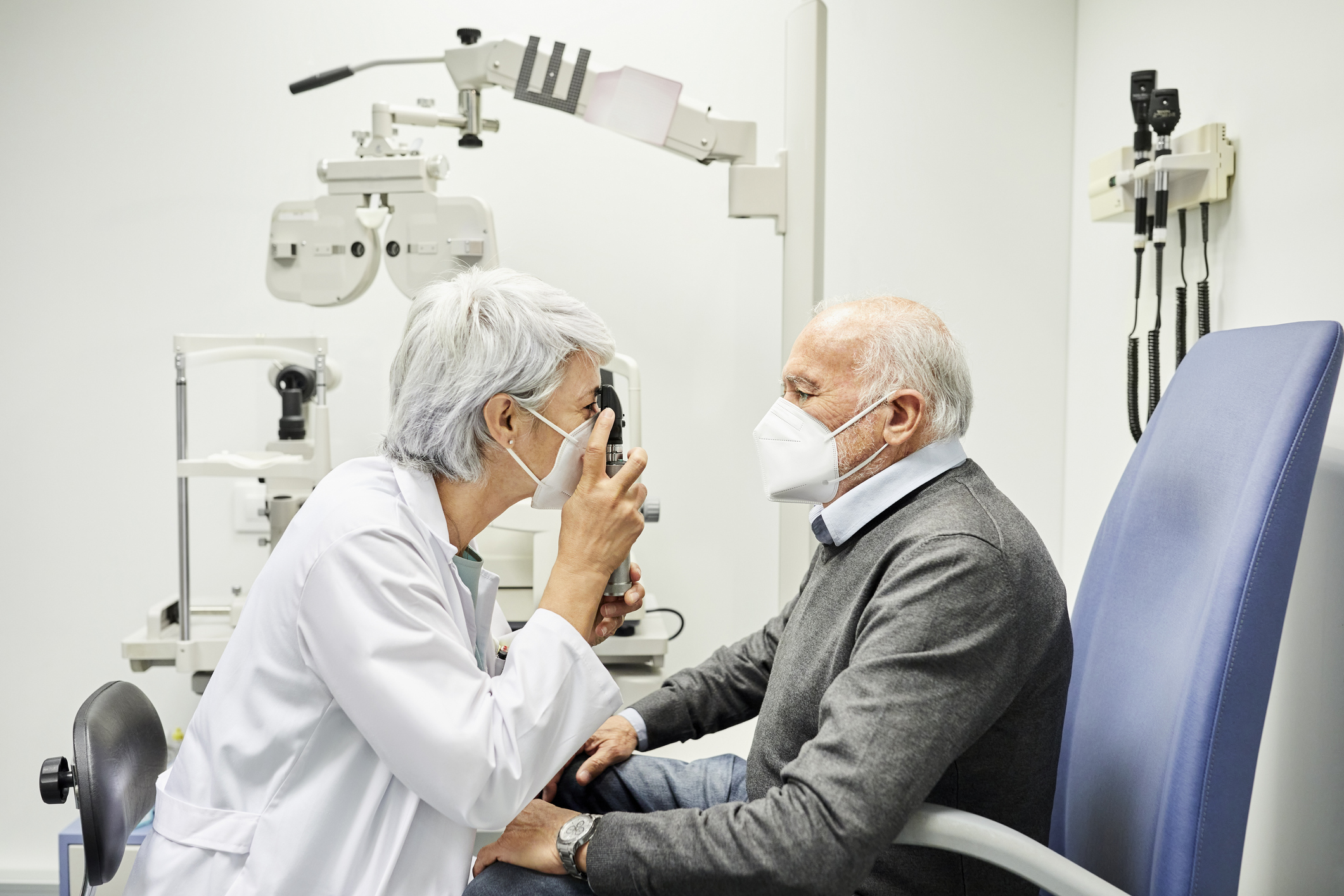November celebrates Diabetes Awareness Month, and while the health complications the disease can bring to people living with it can vary, the impact it can have on vision may come as a surprise. Carle providers urge patients to take their vision health seriously and consider the ways diabetes may affect sight. The most common connection between diabetes and eye health is diabetic retinopathy, a complication caused by diabetes that damages blood vessels in the retina causing vision loss and blindness.
Diabetic retinopathy is the result of changes in the blood vessels of the retina. In some people with diabetic retinopathy, these blood vessels in the retina may swell and leak fluid. In others, abnormal new blood vessels grow on the surface of the retina. These changes can cause severe vision loss.
 Roughly 8 million Americans currently suffer from this diagnosis and experts estimate this number will nearly double by the year 2050, according to the American Society of Retina Specialist (ASRS).
Roughly 8 million Americans currently suffer from this diagnosis and experts estimate this number will nearly double by the year 2050, according to the American Society of Retina Specialist (ASRS).“Many patients don’t understand the connection between diabetes and eye health, and we really want to help educate those who may be at risk,” John Williams, OD, Optometry, Carle said. “Our technology allows for us to catch this early enough to where no one should ever have to suffer the unfortunate effects of diabetic retinopathy”.
Those who have both type 1 and type 2 diabetes, as well as gestational diabetes, are at risk for diabetic retinopathy. Generally, those who have prolonged diabetes are at greater risk for disease, including those with:
- high blood pressure
- poor control of blood sugar levels
- kidney disease
- high cholesterol levels
- pregnancy
Early prevention is key to reducing long-term damages; however, Carle providers are able to treat this condition using intravitreal injections (inside the eye), laser treatments or surgery.
Diabetes expert Owaise Mansuri, MD, Endocrinology, Carle notes that patients at risk can lower their risk for diabetic retinopathy by controlling their blood sugar, cholesterol and blood pressure, losing weight and taking all prescribed medications for their diabetes. He also encourages patients to regularly see their eye health provider to ensure their vision is healthy.

“It’s so important to have a conversation with both your endocrinologist and your optometrist about any changes in your vision,” Dr. Mansuri said. “By prioritizing your annual eye exam and focusing on a healthier lifestyle, patients with diabetes can still maintain healthy vision for life.”
Visit carle.org for more information on diabetes and eye health experts ready to help you stay healthy.
Categories: Staying Healthy
Tags: Bloomington-Normal, Champaign-Urbana, Danville, diabetes, endocrinology, Eureka, eye, Hoopeston, Olney, optical
